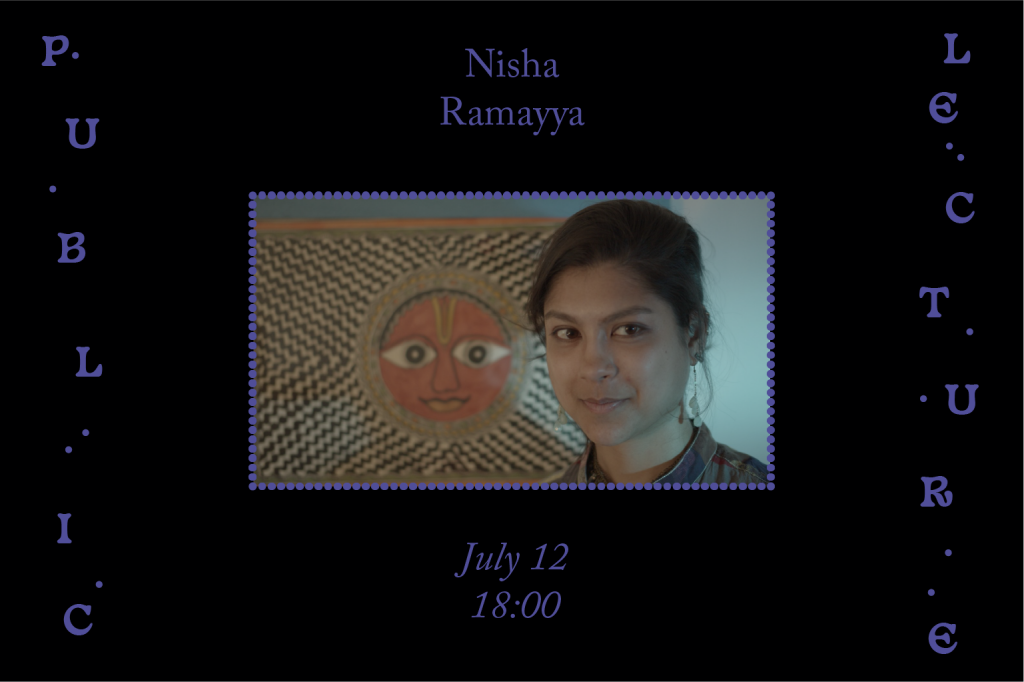AEP Public Lectures #1 Nisha Ramayya: Correspondence as Rackety Bridge as Listening Oceanically

Rupert invites you to the Public Lectures of the Alternative Education Programme, which will be held from July to October 2022.
The first lecture ‘Correspondence as Rackety Bridge as Listening Oceanically’ with writer Nisha Ramayya will take place 12 July at 18:00 at ‘Tech Arts’ gallery, Vaidilutės st. 79, Vilnius. The lecture will be held in English.
Nisha Ramayya about the 1st Lecture:
In this creative-critical presentation, I will share the ‘rackety bridge’ methodology that I’ve been thinking about and writing through for the past few years. Taking its point of realisation and its many departures from Fred Moten’s In the Break: The Aesthetics of the Black Radical Tradition (2003), especially his writing on listening, improvisation, and oscillation, the rackety bridge moves from an image of precarious connections to a practice in the company of Alice Coltrane. Walking to the rhythms of Alice’s socially infused music and her Divine Revelations allows me to imagine crossing a bridge between Tantric Poetics and Black Study; to reflect on what I have learned about race, sociality, and poetics from an ever-proliferating ensemble of Black teachers; to hear certain resonances in my own study of Tantric practices, especially regarding breath and mantra; and to feel beyond the boundedness of alleged subjectivity in such a way that holds rather than elides difference. A correspondence that I have been approaching and before which I have been unable to orient is between mantra and law, different performances of language that compel, different orderings of the world that can empower and obliterate. By focussing on the relationship between Sir John Woodroffe/Arthur Avalon (Chief Justice of Bengal by day, Tantric adept by night) and Swami Pratyagatmananda (P. N. Mukhopadhyaya, Professor of Philosophy and Mathematics, in his earthly life), I’ll listen closely to the perceptible and imperceptible ramifications of their work on Tantric Way. This close listening is informed by the work of many, including Moten, Édouard Glissant, Pauline Oliveros, and Jackie Wang, and unlocks a methodology within a methodology, of crossing the rackety bridge by taking listening walks, by listening oceanically. The investigation is noisy, unwieldy, whatever scaffolding I borrow or encounter perpetually coming apart, but it can’t stop for the conviction that correspondence, as risky as it is, ‘makes life ever’.
Rupert’s activities are supported by the Lithuanian Council for Culture
Partners: Vilnius Academy of Arts, Vilnius Tech, Tech Zity